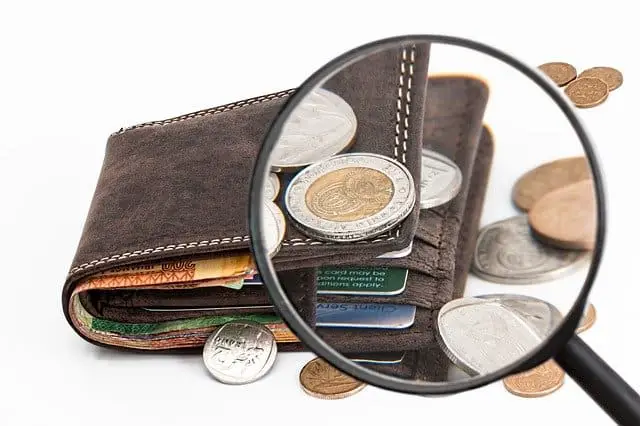In this article, we’ll discuss the important topic of: “Chapter 13 Budget Allowances”
A debtor files for bankruptcy when he cannot repay the debts and has tested all the limits to do so but has failed. However, each bankruptcy is designed considering the debtor and creditor circumstances and provides relief to both. There are primarily three types of bankruptcy: Chapter 7, Chapter 11, and Chapter 13.
In Chapter 13 bankruptcy, the debtor is allowed to make a monthly repayment of the loan over an agreeable period of 3-5 years. Over the next 3-5 years, the debtor has to repay some debts to the creditors each month and meet his needs.
In this article, we will briefly discuss the expenses that the bankruptcy court allows for any debtor to consider before submitting the repayment plan.
Chapter 13 Budget Allowances
In the US constituency, if you have filed a case of bankruptcy, you need to undergo the means test. This test identifies the debtor’s income and expenses and estimates whether the debtor has a sufficient amount left to meet the needs every month, besides paying back the unsecured debts. These expenses are considered essential and are allowed by the bankruptcy court.
These expenses consist of credit card bill payments, medical bills, different taxes, maintenance and utility costs, health and education of the child, etc. However, the calculation is a little complex. It consists of both disposable and non-disposable income, the value of the assets and property you own, the kinds of debts, and the unpaid amounts associated. Let us discuss these allowable expenses in detail.
Allowable and Reasonable Expenses During Bankruptcy
The US bankruptcy court has mentioned a list of essential and allowable expenses for a healthy living of a debtor under Chapter 7 and 13 bankruptcy. Almost every expense listed here is ordinary and reasonable, which you might spend on each year. We have divided them into broad categories.
House Expenses
This includes rent/mortgage payment, repair of damaged houses, and minimum maintenance costs. This is a considerable amount that the debtor has to pay every month.
Food and Necessities
This category is well understood as it includes expenses like food, medicines, water, sewer, trash services. This also includes other essentials like the internet, cell phone bill, cable service, laundry, dry cleaning services, and clothing. The US government also provides provision for “reasonable” recreation, transportation, automobile charges.
Insurances
When it comes to insurance, a few considered necessary, such as term life insurance for yourself only, medical insurance, which includes dental and health, automobile insurance. Another insurance which is again optional is homeowners or renters insurance.
Child Care
Under this category, the allowances approved are the nursing, daycare, babysitting, preschool expenses, and sports fees. Another scenario involves alimony amount and contribution towards child support.
Education and Taxes
This is an exciting category as this includes not just education and taxes but also fits your charitable contributions (which cannot be higher than 15% of monthly income). In education, it includes student loan payments, educational expenses, which may lead to a profession.
The taxes include employment and payroll taxes, which have income, Medicare and social security, union dues, retirement contributions, and state taxes are essential in a citizen of the United States. Surcharges are not dischargeable in bankruptcy. Hence you will have to make the payments without fail.
Bankruptcy Related Expenses
When you file a case in bankruptcy, you will have to hire an attorney. You will have to bear certain expenditures in terms of case filing in court, documentation, etc. and other small amounts.
Guidelines for Surviving Chapter 13 Bankruptcy
Overcoming a bankruptcy is not easy. You will have to follow specific guidelines and maintain a constant standard of living to survive this period. Here are a few tips that might help you get back on track.
Firstly, you will need adequate support who can help you come out of this period. Hiring a good and experienced lawyer and a financial adviser can be the first step. You will have to be honest with them and take their timely advice and consultations. It is an excellent practice to keep your lawyer and financial adviser up to date with your finances. It may cost you a little, but they will also help you overcome Chapter 13 bankruptcy.
The second most important tip is to manage your expenses well. Although Chapter 13 allows you to repay the debts, you will have to cautions of your budget and cut down a few unnecessary expenses.
At the beginning of the session, you can request the lawyer to work out a reasonable repayment plan. Lastly, you will have to pay attention to all notifications over the period. There can be multiple changes and communication from the court, creditors, and trustees. You will have to be present at all meetings arranged by the court. Alongside this, you will need to keep all your paperwork, financial records, documents accurately filled, and are kept ready.
Final Thoughts
The list is comprehensive and elaborative with all the essential expenses that the Bankruptcy court allows for any distressed debtor. You can consult your attorney and decide on which allowable budget is best suited for you.
https://youtu.be/4_rXB4s10MU
Related Articles:
- Using Credit Cards Before Filing Chapter 7
- Get Paid to Be A Virtual Friend
- How Long Should I Wait to Apply for Another Credit Card After Being Approved?
- Which Investment Type Typically Carries the Least Risk?

